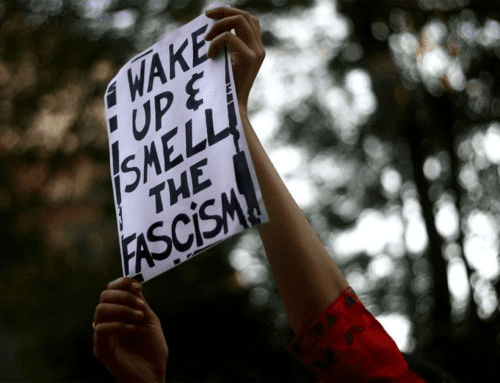

Russia’s Tainted Hand in Eswatini won’t Benefit its Citizens
As Russia’s war on Ukraine continues to rage, Russian Foreign Minister Sergei Lavrov has been busy traveling through Africa and working on cementing ties there in what analysts have called an attempt to assert Russia’s non-isolation. Despite Western sanctions and efforts to ostracize it from the global stage, Russia is trying to show it still has key strategic alliances in place. Lavrov’s visit to Eswatini comes at an opportune time for the country.
Lavrov pledged security training to Eswatini, just days after the brutal murder of a leading human rights lawyer and opposition politician by an unknown gunman. Rumors have spread that state security agencies may have been involved.
Maseko, a leading human rights lawyer and pro-democracy activist, was the founder of the Multi-Stakeholder Forum (MSF), a coalition of opposition parties, associations and churches. His death came just hours after Eswatini’s leader, King Mswati III, challenged activists fighting to end Africa’s last absolute monarchy.
Russia has established a strong presence in Africa as the continent’s leading arms supplier, with security agreements in place with nearly every country. Russian military academies train African military officers and specialists, and the state-aligned Wagner group has a presence in various countries, including Angola and Eswatini. Despite Russia’s influence in security matters, it also has limitations.
Lavrov’s visit to Eswatini highlights a growing Russian security presence in the country, where there have been indications of unrest and opposition to King Mswati III’s rule. The two countries have a military cooperation agreement in place, with reports of Russian troops training Eswatini’s military to quell dissent, a claim denied by Moscow.
Eswatini Foreign Minister Thuli Dladla explained in the joint press conference with Lavrov on Tuesday that “in addition to the Visa Waiver Agreement, we are hopeful of signing more agreements in fields such as Trade and Investment, Agriculture and Food Security, Tourism, amongst others.”
Lavrov’s visit to South Africa, Eswatini, and Angola aims to position Russia as a partner for the continent’s development and security, particularly in the energy sector. However, the tour also has a propagandistic element to boost Russia’s global image as it seeks to strengthen ties with African states amidst the ongoing impact of the invasion of Ukraine. Given Russia’s current economic struggles, the development narrative may be questionable. Russia’s growth prospects are dim due to the war and economic sanctions, making large-scale financial, infrastructure, or trade projects in Africa unlikely.
Eswatini, formerly known as Swaziland, is a small landlocked country in southern Africa. Despite its small size, the country faces a number of significant challenges.
One of the most pressing issues in Eswatini is poverty. According to the World Bank, more than 60% of the population lives below the poverty line. This is shocking, considering that King Mswati III is said to be worth over $100 million. The government needs to focus on creating jobs and increasing economic growth. This can be done by investing in infrastructure, such as roads and power plants, and by promoting foreign investment.
Another major problem is high unemployment, estimated to be around 25%. The government should focus on creating jobs through investment in small and medium-sized enterprises, as well as providing training and education programs to help people acquire the skills they need to secure employment.
The high rate of HIV/AIDS in Eswatini is also a major concern. According to the UN, the country has one of the highest rates of HIV/AIDS in the world, with more than 25% of the population living with the virus. This has had a devastating impact on the population, particularly on women and children. The government’s response to the crisis has been criticized for being slow and inadequate. To address this problem, the government should focus on increasing access to HIV testing and treatment, as well as implementing prevention programs to reduce the spread of the virus.
In addition to these problems, the country has also been plagued by political and economic conflicts in recent years.
One of the main sources of conflict in Eswatini is the lack of political freedom and human rights. The country has been ruled by King Mswati III for over three decades, and his rule has been marked by repression of political opposition, censorship of the media, and a lack of free and fair elections. This has led to widespread dissatisfaction among the population and calls for political reform.
Economic inequality also plays a major role in preventing development. Despite being a relatively wealthy country in terms of natural resources, a large portion of the population lives in poverty. Many people struggle to access basic necessities such as food and clean water. This has led to widespread protests and demonstrations in recent years.
While there have been some efforts to address these conflicts and while the government has promised to hold free and fair elections and has taken steps to improve the economic situation, progress has been slow. Civil society organizations have also played a key role in advocating for political and economic reform.
Despite these efforts, the conflicts in Eswatini persist, and it remains to be seen whether meaningful change will be achieved. The international community, including the African Union and the Southern African Development Community, must continue to pressure the government to address these issues and ensure that the rights and well-being of Eswatini’s citizens are protected.
But the king has shown little interest in improving the lives of the country’s citizens. It is clear at this time that he refuses to focus on creating jobs and increasing economic growth, providing training and education programs, increasing access to HIV testing and treatment, and addressing the socio-economic issues that contribute to the spread of HIV/AIDS.
The government could work to improve the lives of the people of Eswatini if it wants to and it could partner with the West to bring about serious change in the troubled country. Unfortunately, Russia’s interests in Eswatini are self-serving and the citizens of Eswatini will not benefit from a partnership forged between the leaders of the two countries.
Chloe Atkinson is a climate change activist and consultant on global climate affairs.







